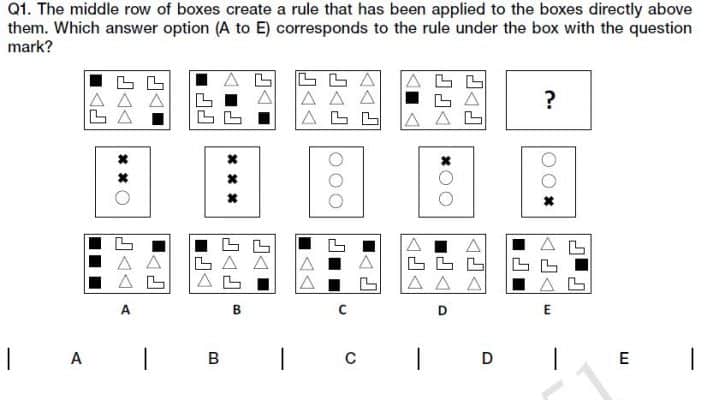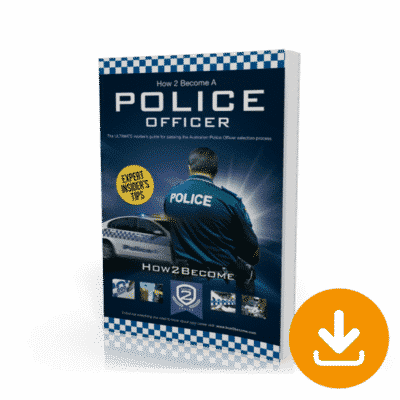Australia is made up of a number of different states, all of which have their own active police force. Each police force has its own distinct recruitment and selection process, and while many of the tests cross over, you will have to sit an individual selection process for different state police force applications. The Australian police tests are all really hard to pass, and therefore it’s imperative that you practice beforehand. In this blog, we’ll give you a run-down of the process involved when taking the Queensland Police Force Entrance Examination.
About Queensland Police Force
Prior to application, it’s a very good idea to learn as much as you possibly can about the police force you are applying to join, and the Australian police tests. You should expect to be quizzed on your knowledge of the force during the interview stage. With this in mind, here’s a brief overview of Queensland Police Force, and its history:
Queensland State broke away from New South Wales in 1859, and founded its first police force in 1864. It began with less than 150 employees, but by 2012 it would employ over 15,000 staff, 10,000 of which are police officers. Based in Brisbane, the Queensland Police Force became the Queensland Police Service and serves five different regions in Queensland.
The Australian Police Tests
During the Queensland Police selection process, you will have to sit a number of comprehensive assessments, designed to test your competency in areas such as writing, psychological awareness, and listening ability. The format for the Australian police tests will be laid out as follows:
Stage 1 – Initial Online Assessment
Stage 2 – Entrance Exam, comprising of the following tests:
- A literacy test.
- A listening test.
- A spelling test.
- A cognitive ability test.
Below we’ve broken down all of the stages of the Australian police tests entrance exam, in more detail.
The Literacy Test
The Literacy Test is designed to assess how well you can read, process and understand information – a crucial quality for any police officer.
One of the most common types of question that you’ll see in the Literacy Test, will involve a passage of text followed by a series of questions which must be answered either TRUE, FALSE, or CANNOT SAY based on the information given.
Answer the questions based solely on the information provided. Candidates who sit verbal reasoning tests often fall into the trap of answering the question based on fact, rather than answering the question based solely on the information provided in the text.
Here’s an example of how people fall foul of the CANNOT SAY option:
Read the following text before answering the question as either TRUE, FALSE or CANNOT SAY based on the information provided.
A uniform is a set of standard clothing worn by members of an organisation whilst participating in that organisation’s activity. Modern uniforms are worn by armed forces and paramilitary organisations such as emergency services and security guards, in some workplaces and schools and by inmates in prisons. In some countries, officials also wear uniforms in some of their duties; such is the case of the Commissioned Corps of the United States Public Health Service or the French Prefects.
- Police officers are required to wear a uniform.
The answer to the question is CANNOT SAY based on the information provided. Many candidates will answer this question as TRUE; simply because we all know that police officers do in fact wear a uniform. However, the passage does not state that police officers wear a uniform, therefore we cannot assume this to be true. The important lesson here is to only answer the question based solely on the information provided, regardless of what you know to be fact.
The Listening/Audio Assessment Test
Audio tests are designed to test how well applicants can retain and deal with information that they have listened to. This is of course, an extremely important skill for a member of the Police. Good listening skills will come into play on a daily basis for a cop, who will have to listen to instructions from their superiors, relay information to those under them, as well as interact and be sensitive to members of the public.
Follow the link below for a blog containing sample Audio Tests:
(Note: the blog contains Civil Enforcement Officer Listening Tests used in the UK. However, we believe they will still be extremely helpful for preparing for an Australian Police Audio Tests – they assess the same skills and allow for practice).
The Spelling Test
As part of the Queensland Police selection process, you will be asked to take a spelling test. Similarly to the reading exercise, spelling is a very important element of working as a police officer, since officers are required to turn in written reports on a regular basis – these reports must be concise, accurate, and error-free. Below we’ve provided a short spelling exercise, to give you some practice. Have a go at this and see how you get on.
1. The Ofsted report implied that discipline could do with some ________.
A – Impruvements
B – Improvments
C – Improvements
D – Improovements
2. The team made a ________ to improving standards in the English department.
A – Comitment
B – Committment
C – Committmment
D – Commitment
3. Students acted as _____________ of the school during the trip.
A – Representetives
B – Reprasentatives
C – Reprusentitives
D – Representatives
4. The school adapted its schedule so that parents’ evenings could occur more ______.
A – Frequantly
B – Frequontly
C – Frequntaly
D – Frequently
5. Teachers were informed that they were to be harsh in disciplining ________ students.
A – They’re
B – Their
C – Their
D – Theyre
Answers
Q1. C
Q2. D
Q3. D
Q4. D
Q5. B

The Cognitive Ability Test
The final part of the exam will require you to take a cognitive ability test. There are two parts to this test, and they are as follows:
Mental Arithmetic
The first part of the test will require you to answer a number of mathematical, mental arithmetic questions. These types of questions require you to perform quick maths, in your head. With this in mind, it’s imperative that you practice beforehand. The better you can train your mind to handle mental arithmetic style questions, the better your chances of success.
Below we’ve listed a couple of sample questions. Have a go at completing these questions within 15 seconds or less.
Q1. 12 x 9
Q2. 89 – 24
Q3. 78 + 49
Q4. 86 + 43
Q5. 14 x 11
Q6. 19 + 279
Answers
Q1. 108
Q2. 65
Q3. 127
Q4. 129
Q5. 154
Q6. 298
Abstract Reasoning
The second part of the test will require you to answer abstract reasoning style questions. These are questions which ask you to look at a series of shapes, and then evaluate the relationship between the shapes. Below we’ve included an example of the type of question you are likely to see.

Answer = D
The rule in this question sees the black crosses dictating the number of squares in the pattern above. The rule being applied to box with the question mark means that only one black square should appear in the answer.
Products You Might Be Interested In
If you’ve found this blog useful, then you’ll be delighted to learn that we have an amazing product – perfect for anyone applying to become an Australian Police Officer. Our comprehensive guide on the Australian Police Selection Process will give you a huge advantage over the competition. So, what are you waiting for? Pick up your copy today!

